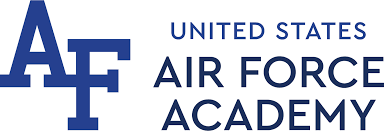Developing Leaders of Character for Responsible Artificial Intelligence
DOI:
https://doi.org/10.58315/jcld.v10.273Keywords:
Artificial Intelligence, RAI, Character Development, Military Ethics, ResponsibilityAbstract
Who is responsible for Responsible AI (RAI)? As the Department of Defense (DoD) invests in AI workforce education, this question serves as starting point for an argument that effective training for military RAI demands focused character development for officers. This essay makes that case in three parts. First, while norms around responsibility and AI are likely to evolve, there remains long-standing legal, ethical, and practical precedent to think of commissioned officers as the loci of responsibility for the application of military AI. Next, given DoD’s emphasis on responsibility, it should devote significant pedagogical attention to the subjective skills, motivations, and perceptions of operators who depend on AI to execute their mission, beyond merely promoting technical literacy. Finally, the significance of character for RAI entails the application of proven character development methodologies from pre-commissioning education onward: critical dialogue, hands-on practice applying AI in complex circumstances, and moral reminders about the relevance of the DoD’s ethical principles for AI.
Downloads
References
Aristotle. (2002). Nicomachean ethics (J. Sachs, Trans.). Focus Publishing. (Original work published ca. 350 B.C.E.).
Austin, L. J. (2021, July 13). Secretary of Defense Austin Remarks at the Global Emerging Technology Summit of The National Security Commission on Artificial Intelligence (As Delivered). Washington, DC. https://www.defense.gov/News/Transcripts/Transcript/Article/2692943/secretary-of-defense-austin-remarks-at-the-global-emerging-technology-summit-of/.
Barnard, C. I. (1971). The functions of the executive (Thirtieth Anniversary Edition). Harvard University Press.
Chapa, J. O. (2022). Is remote warfare moral? Weighing issues of life and death from 7,000 miles. PublicAffairs.
Chief Digital and Artificial Intelligence Office (2023, March 28). Talent and workforce: FY 2023 Training catalog. https://www.ai.mil/docs/2023_CDAO_Course_Catalog_032823.pdf
Del Aguila, C. (2022, April 28). AI accelerator focuses on education. DAF-MIT AI Accelerator. https://www.aiaccelerator.af.mil/News/News-Article-View/Article/3179174/ai-accelerator-focuses-on-education/
Department of Defense. (2018). Summary of the 2018 Department of Defense Artificial Intelligence Strategy: Harnessing AI to advance our security and prosperity. https://media.defense.gov/2019/Feb/12/2002088963/-1/-1/1/SUMMARY-OF-DOD-AI-STRATEGY.PDF
Department of Defense. (2020). Artificial intelligence education strategy. https://www.ai.mil/docs/2020_DoD_AI_Training_and_Education_Strategy_and_Infographic_10_27_20.pdf
Department of Defense. (2022). Responsible artificial intelligence strategy and implementation pathway.https://media.defense.gov/2022/Jun/22/2003022604/-1/-1/0/Department-of-Defense-Responsible-Artificial-Intelligence-Strategy-and-Implementation-Pathway.PDF
Department of Defense. (2023, January 25). DoD Directive 3000.09: Autonomy in weapon systems. https://www.esd.whs.mil/portals/54/documents/dd/issuances/dodd/300009p.pdf
Howard, D. (2014). Virtue in cyber conflict. In L. Floridi & M. Taddeo (Eds.), The ethics of information warfare (pp. 155–168). Springer.
Huntington, S. P. (1985). The soldier and the state: The theory and politics of civil-military relations. The Belknap Press of Harvard University Press.
Joint Artificial Intelligence Center. (2020). Ethical principles for artificial intelligence. https://www.ai.mil/docs/Ethical_Principles_for_Artificial_Intelligence.pdf
Kearns, M. & Roth, A. (2020, January 13). Ethical algorithm design should guide technology regulation. The Brookings Institution. https://www.brookings.edu/research/ethical-algorithm-design-should-guide-technology-regulation/
Kobren, B. (2022, February 14). Hot topics (Part 4): Data analytics & artificial intelligence. Defense Acquisition University. https://www.dau.edu/training/career-development/logistics/blog/Hot-Topics-Part-4-Data-Analytics-and-Artificial-Intelligence
Lamb, M., Brant, J., & Brooks, E. (2021). How is virtue cultivated? Seven strategies for postgraduate character development. Journal of Character Education, 17(1), 81–108. https://www.infoagepub.com/products/journal-of-character-education-vol-17-1
Legal Information Institute. (2022, August). Command responsibility. In Wex. Cornell Law School. https://www.law.cornell.edu/wex/command_responsibility
Medecins Sans Frontieres. (n.d.). Combatants. The practical guide to humanitarian law. https://guide-humanitarian-law.org/content/article/3/combatants/
Office of Legal Counsel. (2007, April 16). Officers of the United States within the meaning of the appointments clause. In Opinions of the Office of Legal Counsel (Vol. 31). Department of Justice. https://www.justice.gov/file/451191/download
Pflanzer, M., Traylor, Z., Lyons, J. B., Dubljević, V., & Nam, C. S. (2022). Ethics in human—AI teaming: Principles and perspectives. AI and Ethics, 3, 917–935. https://doi.org/10.1007/s43681-022-00214-z
Rest, J. R. (1994). Background: Theory and research. In J. R. Rest & D. Narvaez (Eds.), Moral development in the professions: Psychology and applied ethics (pp. 12–34). Psychology Press.
Soter, A.O, Wilkinson, I. A., Murphy, P. K., Rudge, L., Reninger, K., & Edwards, M. (2008). What the discourse tells us: Talk and indicators of high-level comprehension. International Journal of Educational Research, 47(6), 372–291. https://doi.org/10.1016/j.ijer.2009.01.001
Verbeek, P. P. (2011). Moralizing technology: Understanding and designing the morality of things. University of Chicago Press.
Willink, J. (2017, February 2). Extreme ownership. TEDxUniversityofNevada, Reno, NV. https://www.youtube.com/watch?v=ljqra3BcqWM
Published
How to Cite
License
Copyright (c) 2023 Christopher Kuennen

This work is licensed under a Creative Commons Attribution 4.0 International License.
Authors contributing to Journal of Character & Leadership Development agree to publish their articles under the terms of the Creative Commons CC-BY 4.0 License. Authors retain copyright of their work, with first publication rights granted to the JCLD.



